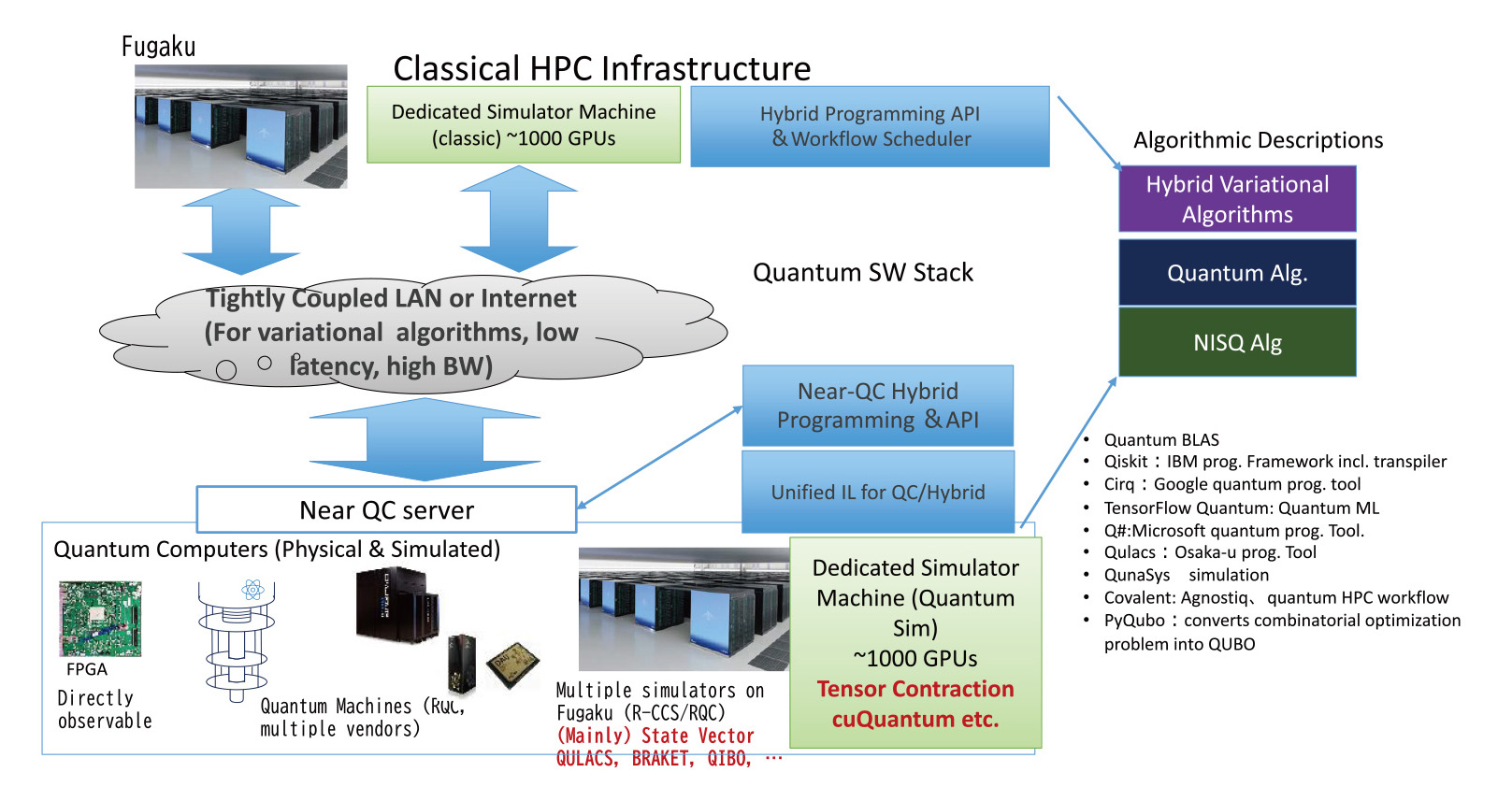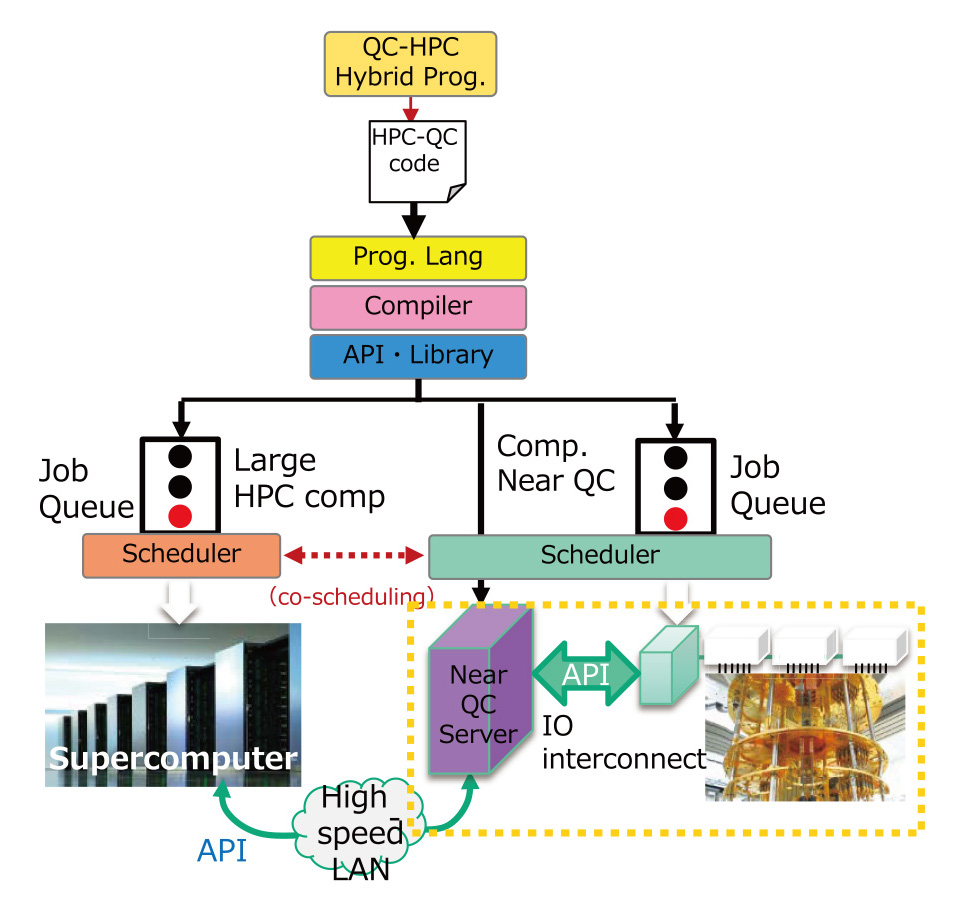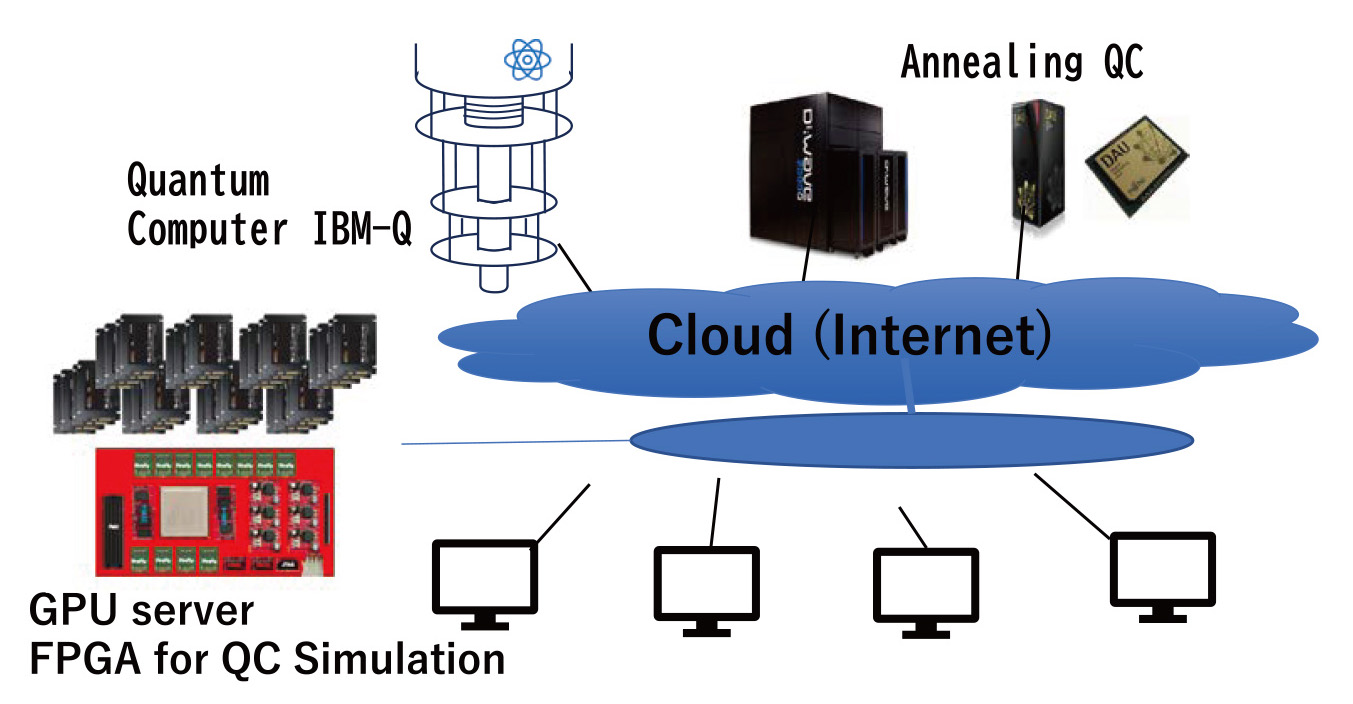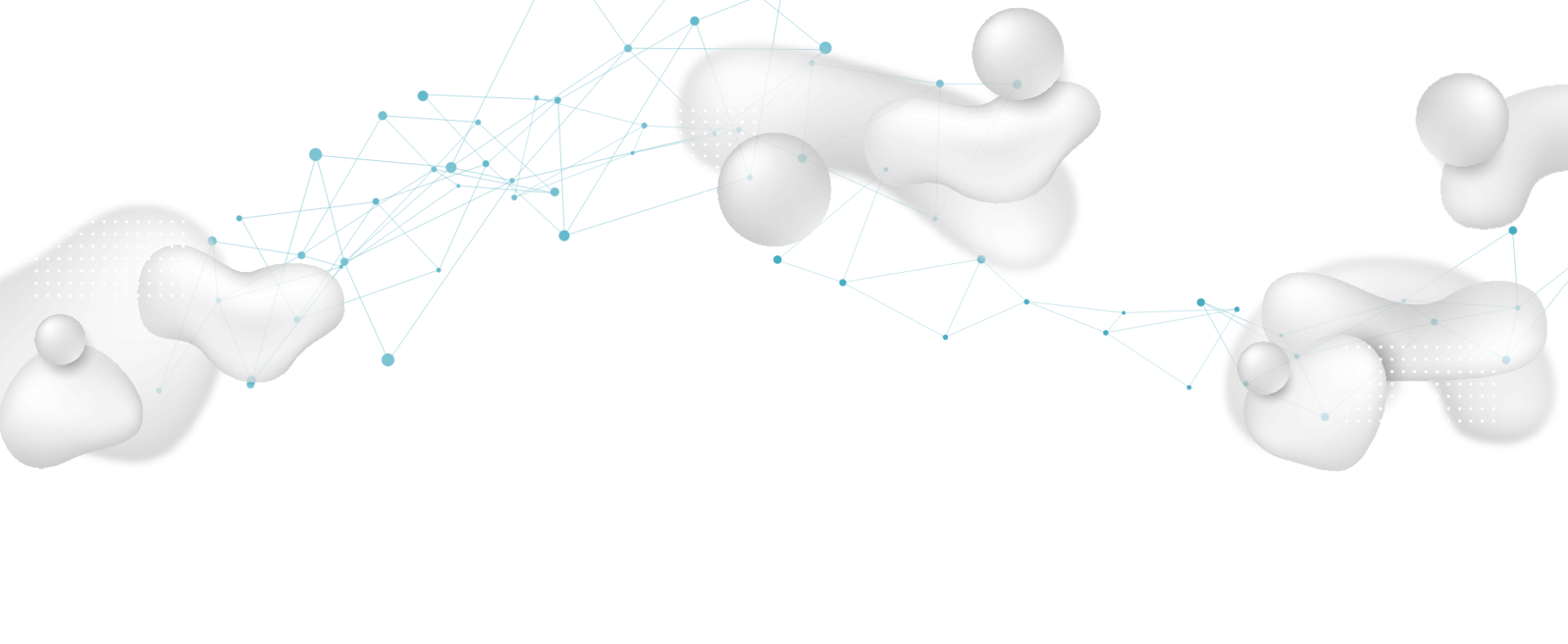Topic Overview
Research and development organization
Research and Development Project Leader
Mitsuhisa Sato (Deputy Director of RIKEN Center for Computational Science(R-CCS))
Participating institutions (Educational)
The University of Tokyo / Keio University / RIKEN (Rikagaku Kenkyūsho)
Participating institutions (Corporate)
Oxford Quantum Circuits Limited / NVIDIA Corporation / AZLAB, Inc.
Characteristics of this topic
- Design of architecture of QC and HPC hybrid computing system: Compilation and dispatch/scheduling for HPC/near-QC/QC for near future QC-HPC system, and which component to be assigned to which levels and components
- Programming models and frameworks for QC HPC hybrid computing: the programming system should enable users to make use of QC HPC hybrid platform seamlessly.
- Acceleration of QC simulation: Using large-scale supercomputer (Fugaku), GPU cluster and multi-FPGA boards
- Optimization of QC circuits and algorithms, and QC compiler
- Optimization and cooperation of quantum computers and classic computers at the level of control and measurement to quantum devices
Overview of quantum-HPC hybrid system of this topic

Research Highlights
Programming models and framework for quantum HPC hybrid computing
- Ongoing research and design on system software to integrate quantum computers with supercomputers.
- As the number of qubits increases, the computational requirements for error mitigation and circuit optimization also increase, making collaboration with high-performance computing (HPC) crucial.
- We designed and implemented a prototype of a remote invocation mechanism, which allowed us to execute quantum computing simulations on GPU servers connected through a local area network from HPC systems.
- We are investigating the software stack for the integration of quantum computers and HPC through remote invocation with co-scheduling of both QC and HPC.
- We are also investigating programming models, considering workflow programming and the Single Program Multiple Process (SPMP) model.

Design of fast quantum computer simulator by FPGA device
- We are working on the implementation of a quantum computer simulator by using an FPGA (Field Programmable Gate Array) device.
- The state vector method can accurately simulate the operation of a quantum computer, but it requires vast amounts of memory and access bandwidth.
- Our design using FPGA devices can accommodate a large amount of memory by connecting multiple SSDs, enabling efficient computation of quantum gate operations.
- We are developing a quantum computer simulator using an FPGA board called Trefoil.
- In the implemented FPGA circuitry, we have realized operations of H gate, S gate, CNOT gate, and 2-qubit gates.
- By using four boards, we can achieve parallel processing with 128 instances, allowing for the simulation of 34 qubits.
- To our best knowledge, our design using FPGA devices for quantum computer simulation is new, especially because of utilizing multiple SATA disks.

Quantum–classical coordination and optimization at the quantum device control/readout level
- In the development of processors for optical quantum computers, a timing synchronization system that is necessary for processing non-classical light is being constructed.
- We are investigating efficient simulation methods for Gottesman-Kitaev-Preskill (GKP) states and optimizing pulse sequences for error correction purposes.
- Efficient simulation methods for high-dimensional harmonic oscillators to facilitate the simulation of large-scale quantum states are also in development.

Future Prospects
Goals for building a quantum HPC infrastructure:
- Design of API and programming model for comprehensive quantum–classical HPC programming.
- Establishment of an automatic and efficient general-purpose quantum circuit optimization technology platform.
- The platform is to be provided for verification of quantum/classical optimization,gate-based quantum computing, and quantum/classical machine learning computations.
Future milestones of this topic:
- Release of integrated programming software for quantum HPC hybrid computing.
- Public release of quantum–classical HPC hybrid platform and its system software.
- Realization of quantum AI prediction using classical devices, such as mobiles and laptops.
